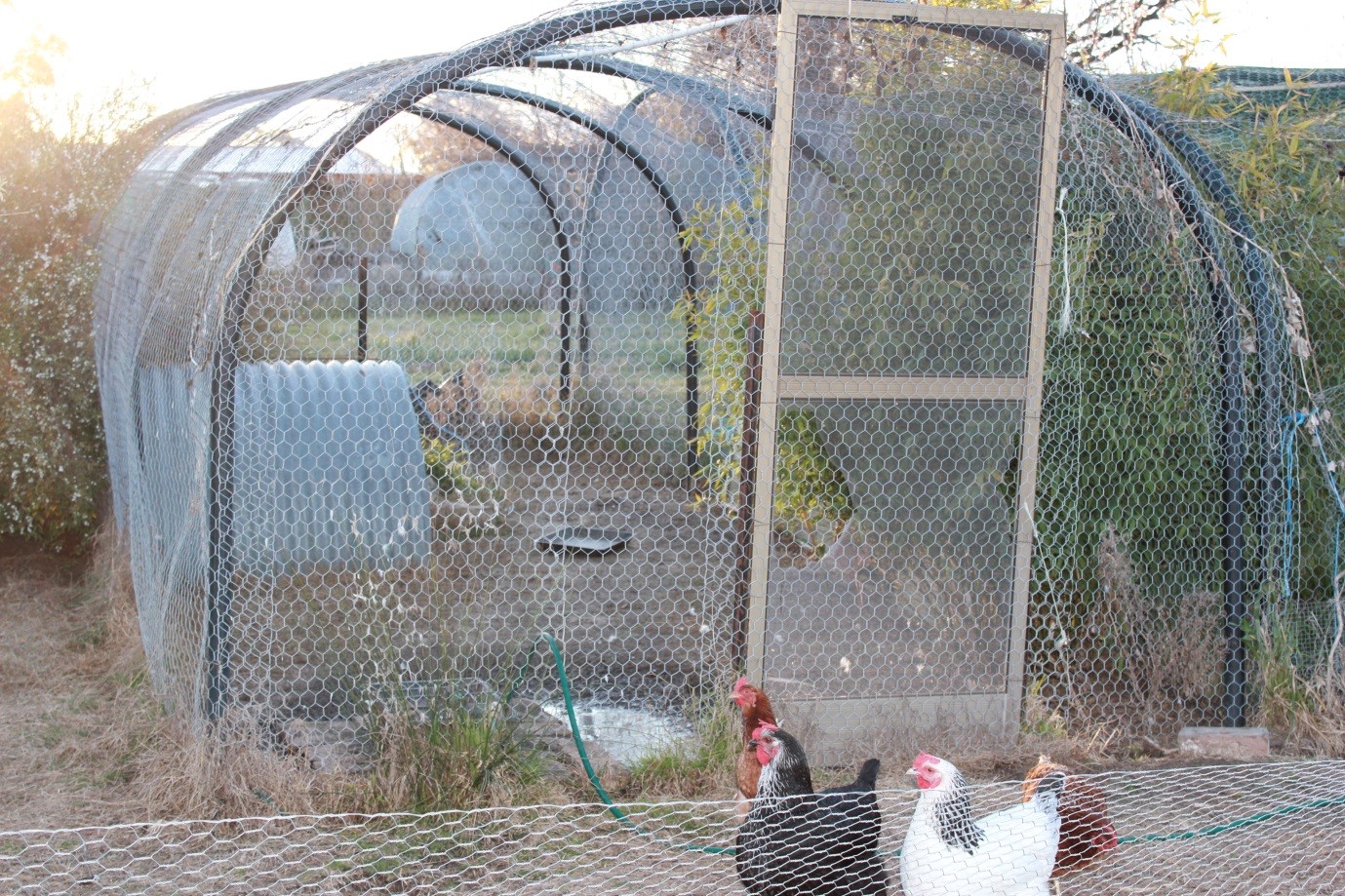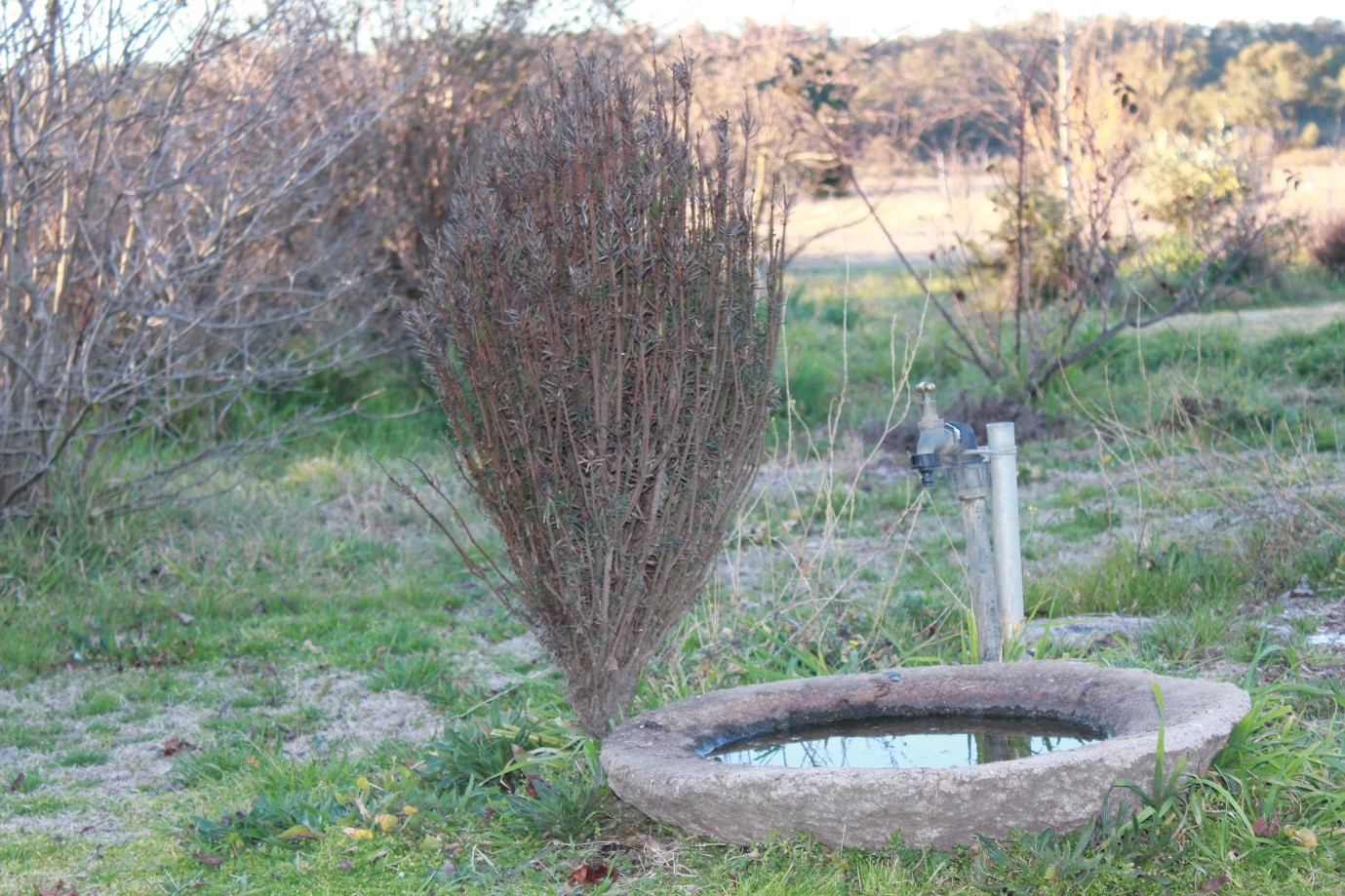Getting Started with Ducks - Kim from Oasis Biodynamic Farm
The last few weeks I've been asking bloggers to tell me more about their ducks. Kim from Oasis Biodynamic Farm volunteered and I'm please to share her story with you today.
Kim: “The Oasis” is our 20 acre lifestyle property near Inverell in northern NSW. Since moving here in 2005 we have set about rehabilitating our land, which was once sluiced for tin and in a very degraded condition. We employ permaculture principles and use biodynamic agricultural practices. We rotationally graze Dorper sheep and Highland cattle to maintain and improve ground cover and build soil organic matter which in combination with the above is healing the land on which we live. We believe that a healthy soil leads to healthy food and ultimately to healthier people. In addition to the sheep and cattle we keep chickens for eggs, ducks, and grow as much of our own fruit and vegetables as possible. We have been growing a small crop of garlic for the past three years, but this year drought conditions led to us growing only enough garlic for our own needs. (See the website for Oasis Biodynamic Farm here).
Farmer Liz: Tell me about your ducks, how many do you keep and what breeds? What do you keep them for? (meat, eggs, other?)
K: We currently have five khaki Campbell x welsh harlequin ducks and one Indian runner duck. These are our core flock which expands to over 20 in breeding season. We originally got into ducks for snail control around eight years ago and knew very little about keeping them. The book For the Love of Ducks by Nyiri Murtagh was a great help, highly recommended if you want to learn more about keeping ducks. We don't butcher our ducks and usually have no problem finding homes for progeny as they are beautiful. We do enjoy a good supply of duck eggs in spring and summer.
 |
| Kim's duck pen |
FL: What sort of housing do you provide for your ducks? Do they free-range? Do you have to lock them up at night?
K: Our ducks free range through the gardens in the day and are fed at night in their pen and locked up for the night.
FL: What sort of water do you provide for your ducks?
K: Ducks must have water available at all times. We have a small water container in their pen which is emptied and refilled every day with clean water. We leave water bowls under taps around the garden for them and also have a small pond in the garden which we periodically pump out onto pastures and the garden for fertiliser.
FL: What’s the best thing about keeping ducks?
K: Their beautiful energy as they wander through our gardens, watching them preening and pottering around. And the added bonus of snail control.
FL: What do you wish you knew about ducks before you got them?
K: They love to eat strawberries and some veges, we put small duck proof fences around vege gardens we don't want them foraging in. They will also try to break into our decorative water garden ponds which we have needed to put barriers around to stop duck invasions.
FL: Any last advice to someone wanting to get started with ducks?
K: Established routines make things much easier. We always feed our ducks in their pen late afternoon so they are trained to come in for feed and be locked up overnight. We don't leave food out ad lib or the ducks won't come in at night and will be susceptible to predators.
Many people think ducks are messy but we don’t find mess a problem. They have a large area to free range around and the manure is good fertiliser for our soil. We make sure there is no feed or water source around areas where we don’t want them making a mess like the house and have no issues.
FL: What sort of water do you provide for your ducks?
K: Ducks must have water available at all times. We have a small water container in their pen which is emptied and refilled every day with clean water. We leave water bowls under taps around the garden for them and also have a small pond in the garden which we periodically pump out onto pastures and the garden for fertiliser.
 |
| one of the water bowls we leave in the garden to encourage them to forage for snails and spread their manure around. These are emptied and refilled regularly |
FL: What’s the best thing about keeping ducks?
K: Their beautiful energy as they wander through our gardens, watching them preening and pottering around. And the added bonus of snail control.
FL: What do you wish you knew about ducks before you got them?
K: They love to eat strawberries and some veges, we put small duck proof fences around vege gardens we don't want them foraging in. They will also try to break into our decorative water garden ponds which we have needed to put barriers around to stop duck invasions.
FL: Any last advice to someone wanting to get started with ducks?
K: Established routines make things much easier. We always feed our ducks in their pen late afternoon so they are trained to come in for feed and be locked up overnight. We don't leave food out ad lib or the ducks won't come in at night and will be susceptible to predators.
Many people think ducks are messy but we don’t find mess a problem. They have a large area to free range around and the manure is good fertiliser for our soil. We make sure there is no feed or water source around areas where we don’t want them making a mess like the house and have no issues.
FL: Thanks Kim! It was great to get your perspective on ducks. And good to know that we may have to keep them out of gardens and non-duck ponds. If you want to comment on this post, please head over to Kim's blog to leave a message.
Getting started with homestead dairy
Getting started with ducks
Getting started with homestead dairy
Getting started with chickens
Getting started with growing vegetables




















Leave a comment